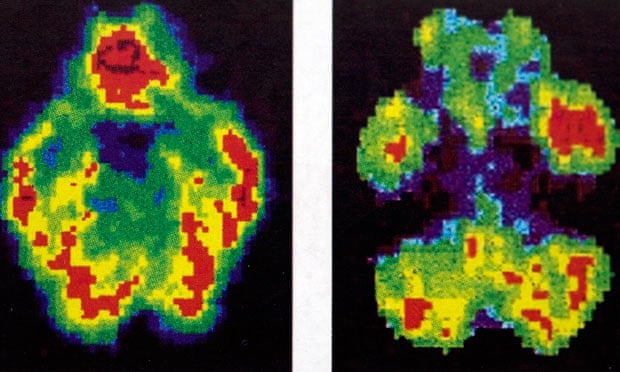I have been having a long-standing argument with a relative newcomer to our pub philosophy group (The Tippling Philosophers) over free will. He believes in libertarian free will, though it does appear to be largely based on an argument from wishful thinking and being unwilling to confront the ramifications of not having it, rather than a robust understanding of the philosophical debate. Here is part of an email that I sent to him today. His comments are blockquotes, mine normal, with quotes from others in italics.
There was difficulty in squaring the notion that a classroom murderer or a lazy student were, in some way, compelled by their inheritances to do anything but commit their, respectively, outrageous and to be regretted actions with the way in which the vast majority of the human race would view them. Most humans wouldn’t agree that they could not have done other.
Let us now consider the libertarians, who claim that we have a capacity for indeterministically free action, and that we are thereby morally responsible. According to one libertarian view, what makes actions free is just their being constituted (partially) of indeterministic natural events. Lucretius, for example, maintains that actions are free just in virtue of being made up partially of random swerves in the downward paths of atoms. These swerves, and the actions they underlie, are random (at least) in the sense that they are not determined by any prior state of the universe.
If quantum theory is true, the position and momentum of micro-particles exhibit randomness in this same sense, and natural indeterminacy of this sort might also be conceived as the metaphysical foundation of indeterministically free action. But natural indeterminacies of these types cannot, by themselves, account for freedom of the sort required for moral responsibility.
As has often been pointed out, such random physical events are no more within our control than are causally determined physical events, and thus, we can no more be morally responsible for them than, in the indeterminist opinion, we can be for events that are causally determined.
Two main problems arise for noncausal accounts of free will; both are problems, in the first instance, for noncausal accounts of intentional action. The first concerns control. Performing an action—even acting unfreely—is exercising active control over what one does; acting freely is exercising an especially valuable variety of such control. An account of free will ought to say what this latter variety of control is or in what its exercise consists. A common objection is that noncausal accounts fail to meet this requirement.
The second (and related) problem concerns acting for a reason. Intentional actions can be (and commonly are) things done for reasons. An action performed for a reason is something for which there is a true reason-explanation. Again, it is often objected that noncausal theories of action and free will cannot provide an adequate account of this phenomenon….
There was an insistence that the only options available to humans are to be at the end of a determining chain of causality or else to behave in an unpredictable and random manner. Again, everyone’s experience demonstrates that other options are available in practice!


1. At an emotional level, reduced prefrontal cortex functioning results in a loss of control over the evolutionary more primitive parts of the brain, such as the limbic system, that generate raw emotions like anger and rage. The more sophisticated prefrontal cortex keeps a lid on these limbic emotions. Take that lid off, and the emotions will boil over.
2. At a behavioral level, we know from research on neurological patients that damage to the prefrontal cortex results in risk taking, irresponsibility, and rule-breaking. It’s not too far to go from these behavioral changes to violent behavior.
3. At a personality level, frontal damage has been shown to result in a whole host of personality changes. These include impulsivity, loss of self-control, and inability to modify and inhibit behavior appropriately. Can you imagine these types of personality traits in violent offenders?
4. At a social level, prefrontal damage results in immaturity, lack of tact, and poor social judgment. From here we can imagine how a lack of social skills can result in socially inappropriate behavior and poorer ability to formulate nonaggressive solutions to fractious social encounters.
5. At a cognitive level, poor frontal functioning results in a loss of intellectual flexibility and poorer problem solving skills. These intellectual impairments can later result in school failure, unemployment, and economic deprivation, all factors that predispose someone to a criminal and violent way of life.
It’s not just one level of analysis but five – five reasons we might expect that poor prefrontal functioning could predispose a person to violent behavior. It’s not surprising, therefore, that poor prefrontal functioning is the best-replicated correlate of antisocial and violent behavior.
In both cases the view, in these respects, of the majority of the human race was put down to delusion on a huge scale, although it was generously conceded that such delusions might have their uses and advantages to the “in the know” brains that run society.An interesting discussion of the nature of meditation ensued. It was described as an instance of a human creature seeking, in spite of the considerable distractions afforded by the white noise of his body, the “data” of his inheritances and the biases with which he is riddled, to rise above these things in order to concentrate his being on something above and beyond them. It was mentioned that mantras and repetitive prayers such as psalms have been used throughout history for this purpose and that this process was a kind of mastering of one’s inheritance by a faculty that was able, thus, to take charge.
There is a tradition in western christian thought of such development of the mastery of oneself (and thus freeing oneself) as in many Arthurian legends where knights seek to do just this and success is seen as the achievement of a kind of nobility. Shakespeare’s Tempest deals with the very same as the young lovers take command of their fate, resisting the temptations of various kinds of incontinence such as drunkenness, as portrayed by Trinculo and uncontrolled animal lust as portrayed by Caliban. The image of what is going on in meditation is an excellent way of showing how inheritances and freedom co-exist and the relationship between them.
I suggest you look into the work of people like Walter Mischal and delayed gratification. He has found that one can predict SAT scores and life success skills on the ability t delay gratification at age 5 and 6. In other words, the sort of people who can be successful at meditation and those who are or cannot be. Meditation is very much linked to delayed gratification. Now, there is a feedback loop going on here such that if you do meditate you can stimulate the anterior cingulate cortex which aids delayed gratification. But you need to be a person who can DG or want to self-improve in order to start that ball rolling etc.
I will leave you with Paul Russell’s words:
…the well-known dilemma of determinism. One horn of this dilemma is the argument that if an action was caused or necessitated, then it could not have been done freely, and hence the agent is not responsible for it. The other horn is the argument that if the action was not caused, then it is inexplicable and random, and thus it cannot be attributed to the agent, and hence, again, the agent cannot be responsible for it. In other words, if our actions are caused, then we cannot be responsible for them; if they are not caused, we cannot be responsible for them. Whether we affirm or deny necessity and determinism, it is impossible to make any coherent sense of moral freedom and responsibility.
My book:
NOTES
Derk Pereboom (2001). Living without free will. Cambridge University Press. pp. 2 ff.
Adrian Raine (2013). The Anatomy of Violence: The Biological Roots of Crime, p
Paul Russell (1995). Freedom and Moral Sentiment, p.14
RELATED POSTS

